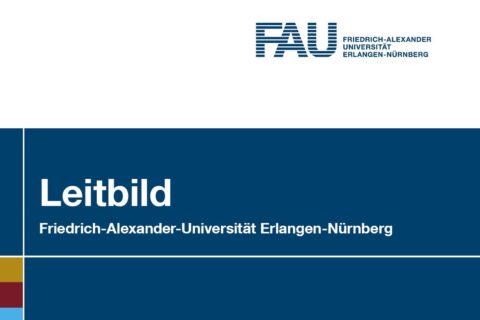Responsibility in research
The FAU mission statement encourages a conscientious approach to risks and freedoms in research
In its meeting on 24 November 2016, the FAU Senate resolved to amend the University’s mission statement: in future it will include a passage which is intended to further sensitise researchers to the issue of the potential use of their research results for beneficial as well as harmful purposes (dual use dilemma) and to call for responsible assessments of consequences. The initiative for the amendment came from the students’ representatives.
‘As a university we are reacting to the palpable unease among the general public caused by the increasing complexity of research questions and methods, as well as the increasing number of projects funded by third parties,’ explained FAU President Prof. Dr. Joachim Hornegger. ‘This isn’t a ban on research; freedom of research is anchored in our Basic Law and the Bavarian Higher Education Act. At the same time this means that we are obligated to uphold the values of our constitution, that is to balance the opportunities presented by research against its risks for human dignity, life and other values also anchored in our Basic Law,’ he continued. ‘In principle various processes, methods, devices or substances which were originally developed for civilian use can also be used for military purposes; the research itself is neutral,’ he said. This is the classic dual use dilemma, which necessitates that researchers consider consequences and minimise risks.
Ongoing reflection on the essential balance of freedom and responsibility is part of the nature of a university, both the institution itself and the individuals associated with it, concluded the president. For that reason he was particularly pleased to see that it was the researchers of the future, i.e. the students, who took the decisive step to push this topic forward at FAU, linking it to the principle of ‘scientific integrity’, which the National Academy of Sciences Leopoldina and the German Research Foundation recently included in their recommendations.
‘It is very important to us that science is used to contribute to the peaceful development of society,’ said Lena Krauß from the student working group ‘Civilian Clause’. The working group co-operated with the Centre for Applied Ethics and Science Communication (ZIEW) to develop the wording for the proposed amendment to the University’s existing mission statement. During the past year the working group introduced their call for reflection on researchers’ responsibility for the consequences of their work to the faculties and discussed it with the relevant committees, the Executive Board and the chairman of the German Ethics Council, Prof. Dr. Peter Dabrock, who is also Chair of Systematic Theology II (Ethics) at FAU. ‘The idea was very well received, particularly in the fields where military research is actually performed,’ Lena Krauß reported.
The Faculty Councils of the Faculty of Sciences, the Faculty of Engineering and the Faculty of Humanities, Social Sciences, and Theology, as well as the Students‘ Representatives Governing Board, issued formal statements advocating the amendment of the mission statement, which the FAU Senate then voted on, in accordance with the University Constitution.
The new passage in the mission statement states:
‘As a public institution FAU is aware of its social responsibility for the consequences of its research. By contributing to transparent, public and interdisciplinary dialogues, it fulfils its duty to comply with recognised ethical and moral standards on the national and international levels. It fosters responsible behaviour, which results in fair and peaceful co-existence of people, cultures and nations.’
‘At the same time we also wish to emphasise once again our recommendation that research results generally be published in order to facilitate the free exchange of information, thus creating transparency and allowing for oversight and quality control of research as well as the dissemination of results for the purpose of progress in our society,’ concluded the president. In respect of this final point, the University makes it a priority to ensure in its contracts that results obtained in projects funded by third parties may also be used for teaching purposes. In the interest of quality assurance, applications for third party funding continue to be evaluated on the basis of transparent requirements by two experts and relevant researchers.
